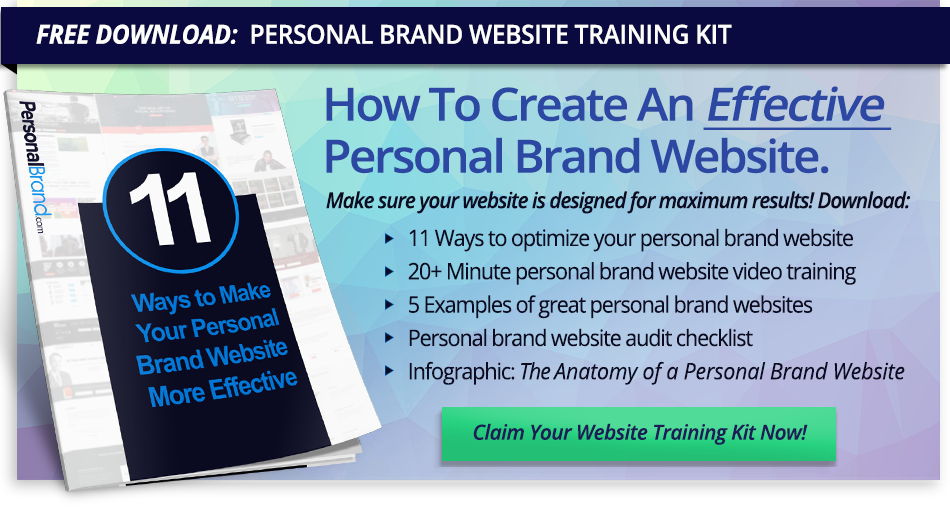I love the howls creative people make when I start to talk about Personal Branding.
“How can I lock down my brand when I’m different all the time?!?”
“What about the BAD or WEIRD parts of me? I can’t build a brand on those!”
“I am not a ‘brand’! I am an artist! I am a human being!”
“What do I need a brand for anyway? What would I use it for?”
And while these objections feel very real, they are just elaborate avoidance strategies, mis-conceptions and myths.
Once you start playing around with some of the experiments in the art of defining your personal brand that I’ve created for you in this blog post, you may find the branding process joyful, inspiring and even liberating.
So let’s look at some of those myths, shall we?
MYTH 1: “I can’t lock myself into a brand, I’m different and changing all the time!”
If you’ve ever had the privilege of meeting a newborn baby, you may have noticed: that child arrived with a distinct set of characteristics, quirks and personality elements already installed.
So did you. And while you’ve matured and grown into a more sophisticated version of your baby-self, you are still very much the same person you have always been.
Your kindergarten teacher probably made much the same comments about your behavior as your last boss did. And both your spouse and your mom will probably agree on your more endearing qualities.
You are you, pretty much all the time.
Even in situations that call up different aspects of your personality, you are always identifiable as you. Even people who haven’t seen you in years still recognize you, don’t they? And no matter how extreme your mood swings are, you still operate within the confines of your own personality.
EXPERIMENT:
Write down the first word that comes to mind. If you don’t know for sure, just make a guess.
My kindergarten teacher might have described me as _________________________
My old boss might have said I was ____________________________
My mom has used this word to describe me ________________________
Someone I’ve been romantically involved with might describe me as____________________
MYTH 2): “I have too many BAD, WEIRD, and/or CONTROVERSIAL attributes, I can’t build a personal brand on those!”
Honey, as long as it’s REAL, there’s nothing people won’t buy. Howard Stern gets paid tens of millions for being crass and vulgar, as well as honest and hilarious. On the other hand, Bob Newhart has built a 50-year career on the characteristics of a boring accountant. (I believe his 1960 album, “The Button-Down Mind of Bob Newhart,” is still one of the best-selling comedy albums of all time.)
Whatever attribute you think makes you undesirable, I urge you to think carefully: what famous person shares that attribute with you? What celebrity takes it to an extreme?
Notice, too, that even your more approved-of qualities can have a dark side.
If you are “charming” you might sometimes be perceived as, “oily, unctuous and untrustworthy.”
And if you are “intelligent,” I can almost guarantee that you have also been “an overbearing know-it-all.”
What are a few of your more “normal” or “boring” qualities that can be taken to an extreme?
Finally, nothing’s more interesting that a person who demonstrates contradictory qualities. For example, we love Dolly Parton because she is both 100% real and 100% artificial.
And especially if your dominant qualities are unusual for your field, you can leverage them as a competitive advantage. Imagine the marketing goldmine of being “the world’s most cuddly lawyer” or a “punk rock yoga teacher.”
EXPERIMENT:
Write down a few of your qualities that might count as both a blessing and a burden.
For example, being a “rebel” has led you to stand up and fight for what’s right, but I bet it’s also meant that you have a slightly complicated relationship with authority figures, yes? And you may have been “the weird kid” in school, but your unusual perspective on the world is part of what makes you known as “incisive” now.
One of my qualities that is kind of a mixed blessing is _______________________.
One of my approved-of qualities is ___________, but sometimes that can be seen as __________.
And I share this quality with a famous person ____________________________.
A quality of mine that sometimes surprises people is _________________.
MYTH 3: “I’m a creative, I’m an artist, I don’t need a Personal Brand.”
Here’s the thing: personal branding is not about turning you into a commodity. Personal branding is being able to articulate that which makes you memorable.
Creating a personal brand around your creative genius isn’t selling out. A personal brand is an asset that can make your art more valuable.
Bono, Peter Max, Michael Angelo, etc. are internationally recognized personal brands that increase the value of the art they produced.
Think of it this way: a brand is a promise.
Every 7-11 promises you that it will be a 7-11, every can of Coke promises you it will be a can of Coke, every Fender guitar fulfills the promise of a Fender guitar.
And people’s personalities are a promise, too. We have that one friend we rely upon to always give us sensible advice, and another friend we count on to be the life of the party. In turn, those people count on you to be a certain way. That “certain way” is your promise.
But because you are on the inside of your own head, you are having an interior experience of yourself. You have never been on the receiving end of your own energy. You have never glimpsed you from across the room, wondered who you were and started flirting with you.
Meanwhile, everyone else on the planet is having an exterior experience of you. They don’t share your perspective and they can’t hear those voices in your head.
So your personal branding vocabulary needs to capture the truth of both your internal experience and everyone else’s exterior experience.
EXPERIMENT:
List a quality of yours that feels one way on the inside, but might be perceived differently from the outside.
Some examples might be:
Inside I feel _shy_ but to others, that sometimes seems standoffish.
Or perhaps:
Others often believe I’m _confident__, but to me, that quality feels more like _hard-working__.
MYTH 4: “I don’t need “brand vocabulary”, my art speaks for itself.”
Anytime someone asks the dreaded question, “So, tell me about yourself…” you have an opportunity to engage your brand vocabulary. If you don’t want to use one of your words, just think of one of your adjectives and a time it showed up strongly in your life and tell them that story. (Works great for job interviews and first dates.)
Same thing goes for writing your bio, creating sales copy and designing your website.
You can use your list of adjectives to:
- Write compelling copy
- Describe your ideal client (because if it describes you, it probably describes them, too)
- Create a list of core values
- Come up with catchy names for products and services
- Add flavor to your Facebook posts, emails, etc.
- Find other celebrities who share your qualities and use them as inspiration
- Seek out other businesses who share your qualities and partner with them
- Post fabulous client success stories that relate to one or more of your qualities
- Share your adjectives to increase understanding, compassion and even intimacy
- Use your words all over your business: in guarantees, policies, welcome emails, ads, tweets, etc.
- Finally, use your adjectives to come up with your Super-Hero Name!
Now, we’ve only done a few little exercises, so you probably don’t have enough words to play around with yet.
—-> Please check out this free, video training on my blog where you can create a more robust branding vocabulary in just a few minutes. (No-opt-in required.)
A FEW NOTES AS YOU EXPERIMENT:
1) Some words in our vocabulary have gained too much meaning, like:
– nice
– talented
– smart
– funny
– awesome
So if you’re tempted to use one of those generalized words, just take yourself one step further and push yourself to be more specific. “Oh, that person is so awesome…and they are so awesome because they are so ______.”
For example, “Oh, Steve Jobs was so awesome…and he was so awesome because he was so INNOVATIVE.”
2) If you don’t like any of your words, go look them up in the thesaurus – there might be another word that suits you better.
3) Over the next day or so, a few more words may come up for you. Feel free to add them to the list.
Now: go be you.


